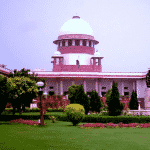India- Afghanistan Relations in 2015
- India’s ties with Afghanistan suffered through much of 2015.
- When Mr. Ashraf Ghani became the President in 2014, he tried to isolate India by placing it in the “fourth” circle of friendship instead of the “first” .
- He focused on engaging with Pakistani military first and decided to visit China on his first official visit abroad. He then visited Pakistan and the US instead of India.
- He even announced an MoU for the Afghan and Pakistani intelligence agencies to work together, and followed it with a process for talks with the Taliban held in Pakistan, which included China.
- India reciprocated the same treatment to Afghanistan by not signing any agreements on President Ghani’s April 2015 visit to India.
Relations in 2016
- Tired of Pakistan’s unabated support to the Taliban groups that have pounded Afghanistan, Mr. Ghani is now seeking closer military ties with India.
- India has promised Afghanistan a slew of transport and ancillary hardware, including more helicopters.
- The Government of India has also revived the India-US-Afghanistan trilateral meeting which had been shelved since 2014.
In News
- Ashraf Ghani visited India on 14-15 September, 2016. This was his second trip to India.
- In Delhi, he made all the right noises on issues of major concern to India, including terrorism and connectivity.
Major highlights of the Joint Statement
- Both leaders expressed their happiness at the close and regular consultations between India and Afghanistan at all levels, which have served to guide their strategic partnership and strengthen all round cooperation.
- Recalling that India- Afghanistan bilateral development cooperation has assisted Afghanistan’s own efforts for successful political, security and economic transitions, they noted the recent completion of the Parliament Building and the Afghanistan-India Friendship Dam.
- PM Modi reiterated India’s abiding support for a unified, sovereign, democratic, peaceful, stable and prosperous Afghanistan.
Security
- To bolster bilateral security cooperation, both the countries asked for an end to sponsorship of “all forms of terrorism”.
- They signed an Extradition Treaty to facilitate exchange of wanted terrorists and criminals.
- In an indirect reference to Pakistan, both sides called upon “the concerned” to “put an end to all sponsorship, support, safe havens and sanctuaries to terrorists including for those who target Afghanistan and India”.
- Both leaders reaffirmed their resolve to counter terrorism and strengthen security and defence cooperation as envisaged in the India-Afghanistan Strategic Partnership Agreement.
Other agreements
- They also signed agreements on peaceful uses of outer space and on cooperation in civil and commercial matters.
- They also sought faster implementation of the trilateral agreement among Afghanistan, Iran and India sealed in May 2016, aimed at creating a network of regional connectivity around Iran’s Chahbahar port. Apart from this, Chahbahar will generate Indian opportunities for Intelligence collection and activity.
- A bilateral agreement was signed on visa free travel for diplomats during the February visit of CEO Abdullah Abdullah to India.
What India offered to Afghanistan
- India has extended $ one-billion to Afghanistan for ‘capacity and capacity-building’ in areas such as education, health, agriculture, skill development, women empowerment, energy, infrastructure and strengthening of democratic institutions.
- India has also offered to supply world class and affordable pharmaceutical products and medicines.
- Cooperation in solar energy through mutually agreed instruments will be done.
Major Hiccups in India- Afghanistan Relations
- The Afghanistan-Pakistan Transit Trade Agreement (APTTA)
- As per the APTTA, in return for being allowed to drive Afghan trucks with fruit and dry fruit up to Wagah, Pakistan would be given transit to Central Asian countries bordering Afghanistan, where Pakistani textiles, and agricultural and surgical goods have a good market.
- The APTTA clearly specifies that no Indian goods could be imported, and the Afghan trucks would have to drive back empty to the Afghanistan-Pakistan border. They could load up with Pakistani goods instead.
- Afghanistan has sternly warned Pakistan that if it continued to restrict Afghan trade with India, they would consider blocking Pakistan’s access to Central Asia.
- Far from being a unifier, the agreement has become a point of deep discord.
- Pakistan has rejected any changes to the APTTA that would benefit India.
- As a result, India is working on a corridor via Iran’s Cahahbahar port, where goods will go up the land route and connect to the Zaranj-Delaram Highway without touching Pakistan.
2. The Motor Vehicle Agreement between the two countries is pending due to lack of support from Pakistan. Pakistan’s cooperation is vital because it through it passes the shortest overland route between India and Afghanistan.











